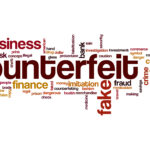Introduction
In today’s digital age, purchasing tickets for events, concerts, and travel has become incredibly convenient. With just a few clicks, you can secure a spot at your favorite show or book a flight to visit your dream destination. Unfortunately, this convenience has also given rise to online ticket scams. In this article, we will discuss the different types of online ticket scams and provide you with tips on how to prevent falling victim to them. Additionally, we will also guide you on how to report any suspected scams.
Types of Online Ticket Scams
There are several common types of online ticket scams that you should be aware of:
1. Counterfeit Tickets
Counterfeit tickets are fake tickets that are designed to look like genuine ones. Scammers create these fake tickets using sophisticated software and printing techniques. Once sold, the purchaser will find out that the ticket is invalid when they attempt to enter the event or board a flight.
2. Phishing Scams
Phishing scams involve tricking you into providing personal information or payment details by pretending to be a legitimate ticket seller. These scams often come in the form of emails or fake websites that look like official ticketing websites.
3. Scalping
Scalping, also known as ticket reselling, occurs when someone purchases tickets with the sole intention of reselling them at a higher price. While not all ticket reselling is illegal or fraudulent, some scalpers use bots to buy up large quantities of tickets, making it difficult for genuine fans to purchase tickets at face value.
4. Speculative Ticket Listing
Speculative ticket listings are when a seller lists tickets for sale before they have actually secured them. In many cases, the seller may never acquire the tickets and the buyer is left empty-handed.
Prevention Tips
To protect yourself from online ticket scams, follow these tips:
- Purchase from official sources: Always buy tickets from authorized sellers, such as the event organizer, venue, or a reputable ticketing agency. Avoid purchasing tickets from third-party websites or social media platforms.
- Check for secure payment options: Ensure that the website uses a secure payment system, such as SSL encryption, to protect your financial information. Look for “https://” in the URL and a padlock icon in the browser’s address bar.
- Research the seller: Before purchasing tickets from an unknown seller, do some research to ensure their legitimacy. Look for reviews from previous buyers and check for any red flags or scam reports.
- Be cautious of too-good-to-be-true offers: If a deal seems too good to be true, it probably is. Be skeptical of deeply discounted tickets or offers that are significantly lower than the face value of the ticket.
- Use a credit card: When purchasing tickets online, use a credit card to protect yourself from fraud. Many credit card companies offer protection against unauthorized charges and can help you dispute the charges if necessary.
Reporting Online Ticket Scams
If you suspect that you have fallen victim to an online ticket scam, follow these steps to report it:
- Contact the ticket seller: If you purchased the ticket from a third-party seller, contact the seller directly to request a refund or to resolve the issue.
- Report it to the event organizer or venue: Contact the event organizer or venue to inform them of the issue and provide any relevant information.
- File a complaint with the Federal Trade Commission (FTC): In the United States, you can file a complaint with the FTC online at ftc.gov or by calling 1-877-FTC-HELP. In other countries, you may have a similar consumer protection agency.
- Report the scam to your local law enforcement: Contact your local police department or other law enforcement agencies to report the scam. Provide them with as much information as possible, including any communications, receipts, and other evidence.
- Notify your bank or credit card company: If you used a credit card to make the purchase, contact your bank or credit card company to dispute the charges and protect yourself from possible identity theft.
Conclusion
Online ticket scams can be frustrating and costly, but by being vigilant and following the prevention tips provided in this article, you can minimize your risk of falling victim to these scams. Remember to always purchase tickets from authorized sources, and if you suspect that you may have been scammed, report it immediately to the appropriate authorities.
















